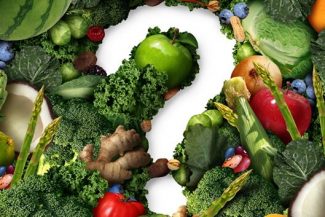Five Key Changes: Introduction
After conversations with friends and family about nutrition, a question I found myself struggling to answer was: what have I changed? How did my studies help me change in my own diet? For a brief moment, I started to worry that I hadn’t changed anything at all… #badnutritionist
Prelude
Initially, most of my studies involved human physiology (the body’s biological functions) and pathophysiology (dysfunction of the body in disease and disordered states). It wasn’t until the second and third year that I focused more on the nutritional properties and functions of food.
My studies were not for my own health directly of course, it was mainly for public health and specific case studies of others. Demonstrating the application of nutritional science, practice and governance to stages and aspects of disease; age; gender; lifestyles and sports performance. We also studied social influence; industry production and environmental issues. So it was inevitably hard to pin down changes that I felt I had applied to my own nutrition and wellbeing and why.
With a certain amount of deliberation, I have compiled what I feel to be the five key changes that I have made over the past few years. These are changes that I have been able to maintain long-term and I feel have improved my health and dietary behaviour. Please note that these are my personal changes, offered as a sense of perspective and they are not intended as direct guidelines or advice to you, the reader.
Five Key Changes
-
Meat intake
-
Variety
-
Carbohydrates and fibre
-
Supplements
-
Fermented foods
Over the next few weeks, I will be sharing an article on each of these changes and how I have managed them. They incorporate not only scientific background to explain why I have made these decisions but also the importance of both social and personal perspectives. I hope that it will be interesting, informative and above all, instil an appreciation for balance between scientific research and holistic practice.
For me, it has been (and continues to be) a gradual process that started with a dietary analysis. It evolves as I take stock of my needs and weaknesses in nutrition and health. We all have different requirements that change over time, so it is inevitably up to us as individuals, to research and learn how to meet our own needs. This is why sometimes changing your whole diet to meet specific guidelines can be difficult to implement. If you are not prioritising your personal needs when attempting to adopt big changes that affect cooking, behaviour and taste, it can be difficult to maintain. Plus, you will likely have foods and behaviours within your diet that are beneficial for your health that do not need to change.
Tune in next week for the first topic of this five key changes series: Meat intake.

Did you know: The word diet, that broadly means food that we eat routinely, stems from the Greek word diaita which means ‘way of life’?
Ever since learning this, I sometimes interchange meanings of the word ‘diet’ which is a bit confusing and lazy of me. But it seems futile to add … and lifestyle in a sentence, when it was once included in its meaning…

